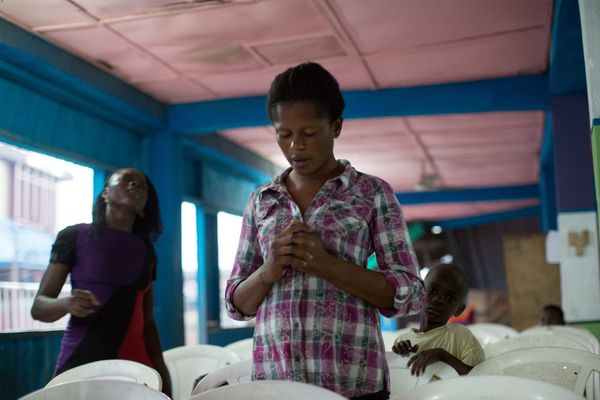LAGOS, Nigeria — Bunmi Aiyenuro slips through the cramped alleys and crowded marketplaces that twist through her neighborhood. Mostly, her impeccable manners and quiet demeanor help her fade into the mass of vendors and pedestrians. But every so often, she runs into teenage boys catcalling her or clashes with an uncle, her evening walk devolving into a screaming match next to the train tracks. Aiyenuro grew up in Badia East, a crowded slum tucked off a Lagos highway, hugging a rail line. The neighborhood is dense and urban, and Aiyenuro has learned to negotiate the frenetic scene. But at 23, she is still learning to juggle the conflicting expectations for her as a young woman.
At 16, she fell in love with her second boyfriend, a student. They spent seven years together. Over the course of the relationship, she had seven abortions.
In Nigeria abortion is legally restricted, permitted only to save the life of the mother. But at least 760,000 abortions happen every year, mostly outside the legal parameters, and from 3,000 to 34,000 women die annually from unsafe abortions, according to reports by the Guttmacher Institute and the government of Nigeria. (The numbers range widely because of the difficulty tallying the secret procedures.) While safe abortions have a very low complication rate, unsafe ones — those performed by providers without adequate training or in a setting that does not meet medical standards — can lead to hemorrhaging, infection and perforation of the bowels or uterus and death.
Read the full article on Al Jazeera America.
